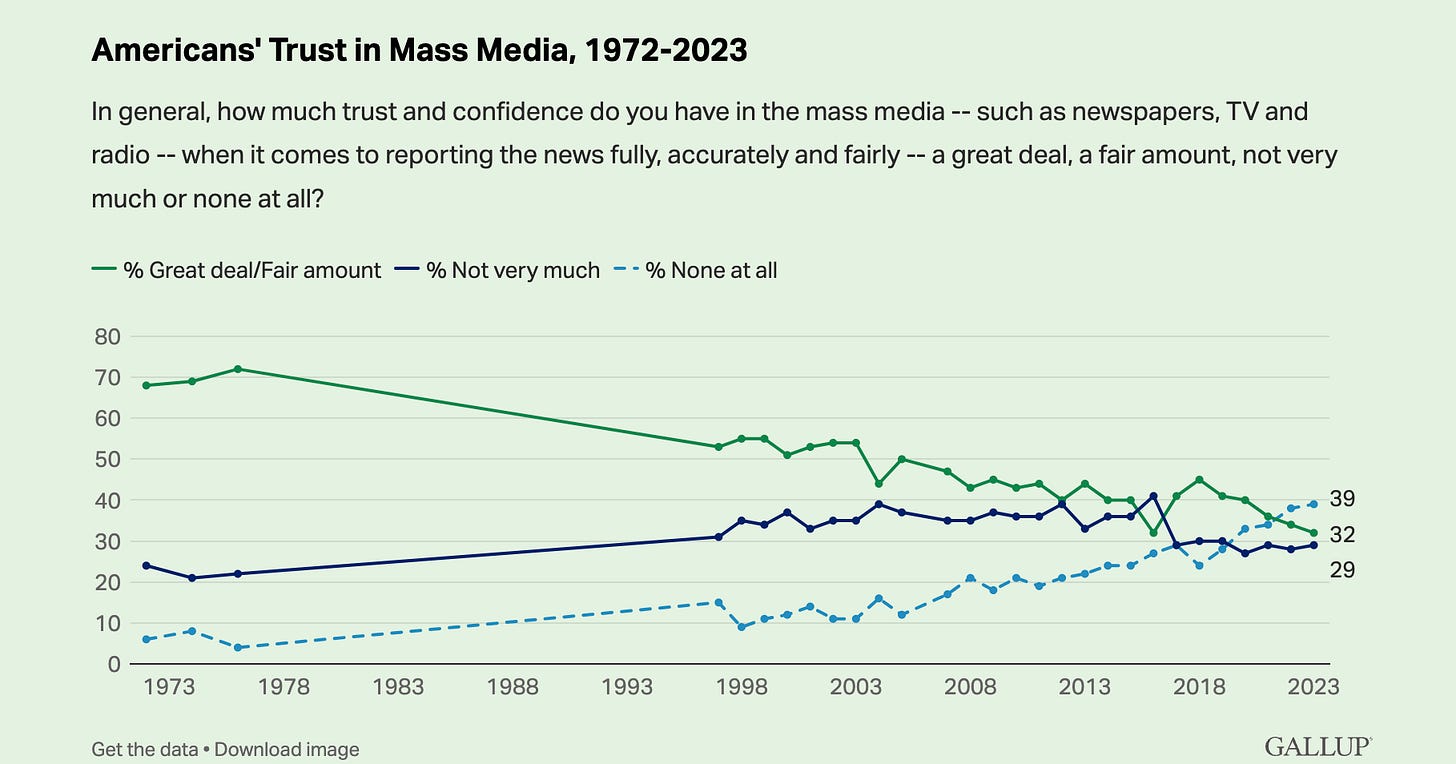Social Media Picks The News
Like it or not, there's an arbitor between you and the news you consume.
Until the Internet made everyone an amateur reporter and gave birth to politically-charged platforms, media was professional, abided by well-known standards, and played it straight. The critical and most important thing to know about pre-internet media, is that reporters who wished to keep their jobs, did not start investigations knowing how they would end. That difference, when compared with today, is monumental, and impacts the news we choose, and how we view our world.
About twenty years ago, when I was raising money for what ultimately became Air America Radio, I had the misfortune of being introduced to a guy who was more grifter than investor. He funded us with ill-gotten money. It took time and even more money, but we eventually sorted out the entire mess and got rid of the fraudster (a serial offender who now has lots of time for reading and body-building in federal prison). He was slick, and we weren’t his only victim.
The whole sordid affair wound up on the front page of the Wall Street Journal, and the reporter there, Julia Angwin, did a remarkable job of telling the story without prejudice. Air America survived (nearly) intact and we were able to introduce the world to Rachel Maddow, who at the time was the most articulate house painter in Western Massachusetts. We also helped Al Franken remake his reputation and turn the corner from comedian to serious policy wonk, resulting in his successful run for the Senate in 2008. (We keep the original entity alive now as the nonprofit Progressive Voices website and app. And, of course, MSNBC snapped Rachel up.)
Over the course of all this, I became friendly with Ms. Angwin, the Journal’s investigative reporter. We have stayed in touch through the years, and she has continued to amaze me with her work concerning the various pitfalls and ambiguities associated with the new world of media.
The most important thing I learned from Julia is a lesson that she learned from her father when she was starting her career as a journalist. He said to her, “No matter what you do, don’t get attached to the outcome.“
We all know that nothing is as constant as change. Buggy-whip makers went out of business when automobiles reached mass penetration, supplanting horses, mules, and other whip-able beasts of burden. It is a given that new technologies usurp the content of their antecedents: silent films gave way to talkies; television stole radio’s dramas, forcing them to adopt their second act, music; simultaneously, television killed the newsreels and serial dramas audiences used to see at the movies.
In short, all things must pass.
The weird dichotomy is that even as we court it, we fear change. For some, the fear is paralyzing. William F. Buckley, the leading conservative light of the 1960’s famously said, “A Conservative is a fellow who is standing athwart history yelling 'Stop!” But of course, history does not stop. It is not in our nature to stop. We are inquisitive. Some would say our raison d’étre—the most important reason for our existence—is to inquire. To inquire about life and its meaning. To inquire about how things work. To inquire about how to make new things from our existing knowledge. To move us forward in the realms of understanding and ability.
Franz Kafka, in reflecting on achievement wrote, “The meaning of life is that it stops.” He was saying, do all you can, while you can.
In that spirit, Julia left the Journal to work with academics on the changing nature of journalism and media. Her latest report exposes the impact the big social platforms have on the news.
Here's Julia: “Google and Facebook are gatekeepers to the news. It used to be that news organizations had some say over how their work was distributed - either by negotiating with newsstands, or cable companies, or hiring their own delivery networks. But in today’s world, news is largely distributed on social media through algorithms that Google and Facebook control.
“And while news is what drives a lot of traffic on social media, news outlets don’t make much money from it. The platforms rake the vast majority of the money. In the past twenty years, global newspaper revenue has plummeted to $32 billion in 2022 from $107 billion in 2000 – while online ad revenue has soared to $540 billion.
The destruction of the business model for news has led to rounds of layoffs, shrinking newsrooms, the rise of clickbait and most disturbingly, a rise in impunity. Studies show that voting decreases and corruption increases in communities lacking strong news outlets.”
As local news has become unsustainable in smaller markets, and totally consolidated in the larger ones, we’ve seen the emergence of a few big purveyors and a million little ones.
Their standards may not be your standards. Let the buyer beware!
©2023 Jon Sinton





Excellent!